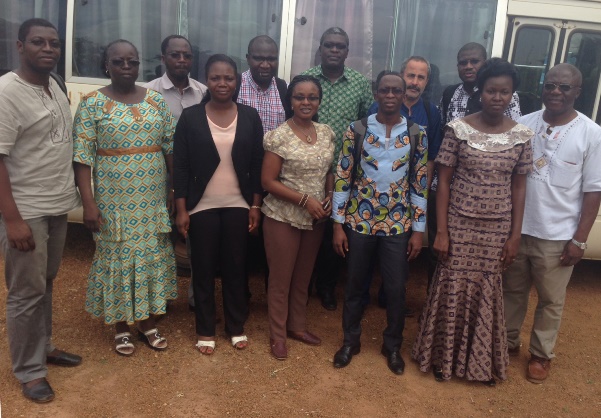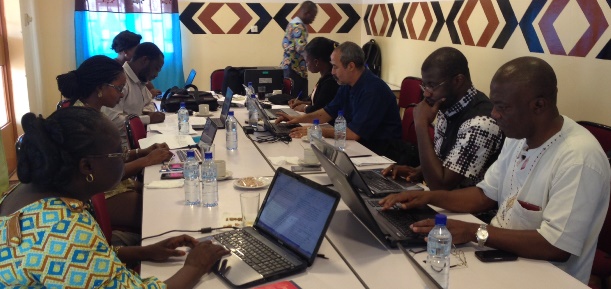Workshop to complete volumes on the Demographic Dividend linked to Education and the EconomyOuagadougou, Burkina Faso, 25-27 July 2016 Organized by the IUSSP Network on Strengthening Demographic Training in Francophone Africa (FraNet)
The Network's Steering Committee: • Chair: Parfait Eloundou Enyegue (Cornell University) • Membership: Gervais Beninguisse (Institut de formation et de Recherche Démographiques - IFORD), Philippe Bocquier (Université Catholique de Louvain), Valérie Delaunay (Institut de Recherche pour le Développement - IRD), Jean François Kobiane (Université de Ouagadougou), Richard Marcoux (Université de Laval).
On the margins of the colloquium celebrating the 25th anniversary of the Institut Supérieur des Sciences de la Population (ISSP), Université de Ouaga I Pr Joseph Ki-Zerbo, the Network for the Strengthening of Demographic Training in Francophone Africa (FraNet) organized a workshop to complete work on two volumes covering the educational and economic dividend. African governments and international institutions such as the African Union consider the demographic dividend to be a development opportunity for Africa. This position was reaffirmed by the African community in the Post-2015 Development Agenda that cites the demographic dividend as an essential tool for sustainable development in Africa. However, the interpretation of the concept, its measurement and the conditions of its realization as well as its benefits remain obscure to many. It is in this context that the network has mobilized its members to provide a reference volume on the demographic dividend.
The workshop brought together eleven members of the network working on chapters in the volumes devoted to the educational and economic dividend. The principal objective of this workshop was to review the chapters for these two volumes as well as consider a new volume that would be entitled ”50 questions about the demographic dividend”.
After a welcome by Gervais Beninguisse, member of FraNet's steering committee, Michel Tenikue presented the methodological structure of the two volumes in production and reflected on the new volume to be produced.
For the volume on the economic dividend the group:
The new volume would address recurring questions of the scientific community, policy makers and the general public with regards to: understanding the concept of the demographic dividend, measuring the dividend, and explaining the conditions under which countries can expect to reap benefits from a demographic dividend.
The authors present at the workshop emphasized the importance of bringing in new contributors from other disciplines for this volume, both members of the FraNet network and those outside the network.
See also: • The web page for the Francophone Network (FraNet). Funding: The IUSSP Network for Strengthening the Demographic Training in Francophone Africa is supported by The William and Flora Hewlett Foundation. |
 |

